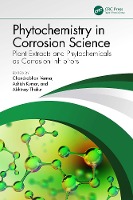Dr. Chandrabhan Verma works at the Department of Chemical Engineering, Khalifa University of Science and Technology, Abu Dhabi, United Arab Emirates. Dr. Verma earned his B.Sc. and M.Sc. degrees from Udai Pratap Autonomous College, Varanasi (UP), India. He earned his Ph.D. from the Department of Chemistry, Indian Institute of Technology (Banaras Hindu University), Varanasi, under the supervision of Prof. Mumtaz A. Quraishi in Corrosion Science and Engineering. He is a member of the American Chemical Society (ACS) and a lifetime member of the World Research Council (WRC). He is a reviewer and editorial board member of various internationally recognized platforms. Dr. Verma published numerous research and review articles in different areas of science and engineering. His current research focuses on designing and developing industrially applicable corrosion inhibitors, and he has previously edited multiple books. Dr. Verma received several awards for his academic achievements, including a gold medal in M.Sc. (Organic Chemistry; 2010) and best publication awards from the Global Alumni Association of IIT-BHU (2013).
Dr. Ashish Kumar is currently Professor (Chemistry), Dean Academics and Head, Applied Science and Humanities, Nalanda College of Engineering, Bihar Engineering University, Science, Technology and Technical Education Department, Government of Bihar, India. He has been listed in the "World Ranking of Top 2% Scientists-2023" database released by Stanford University, USA. His research work is related to corrosion inhibition, material chemistry, thermodynamics, and interaction studies in liquid medium and homogeneous catalysis. He has been a reviewer of various journals. He has also published more than 100+ research papers in high-impact quality journals. He has also authored and reviewed several books and published diverse chapters (50+) in refereed books. He is a guest editor/editorial board member of several international journals and a keynote speaker and member of technical committee in various national and international conferences. He also evaluated several Ph.D. theses from India and abroad.
Dr. Abhinay Thakur is an Assistant Professor at Research and Development Cell, Lovely Professional University, Punjab, India. His research work is related to corrosion inhibition, material chemistry, thermodynamics, and interaction studies in liquid medium.

